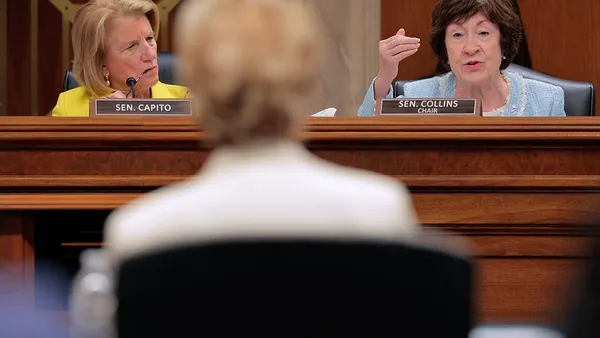Dive Brief:
-
Targeted school violence is largely preventable when schools, parents, peers and community members spot early warning signs and intervene, according to a U.S. Secret Service analysis of plots against schools.
-
The analysis included a review of 67 instances from 2006-2018 when a current or former student plotted to attack their school but was halted. In all of those cases, the planned attacks were averted because someone concerned by the plotter’s behaviors reported the potential threat. Successfully sidestepped attacks involved the timely reporting of troubling behavior, the analysis found.
-
Schools should use multidisciplinary threat assessment programs that prioritize robust interventions and supports for students experiencing distress — not approaches that exclusively center on discipline or introduce students into the criminal justice system, the analysis recommends.
Dive Insight:
“The key findings of the study are clear and consistent: Individuals contemplating violence often exhibit observable behaviors, and when community members report these behaviors, the next tragedy can be averted,” wrote U.S. Secret Service Director James M. Murray in the report.
There are a range of lower-level behaviors, such as depressed or angry mood or conflicts with classmates, that may be concerning but might not rise to the level of immediate safety response, though they should initiate some level of intervention. Objectively concerning or prohibitive behaviors, such as threats of violence or bringing weapons to school, should elicit immediate responses, the report said.
The report also found classmates are often best positioned to identify and report concerning behaviors, as they were the ones more often knowledgeable about communications about the attack plot. The report recommended more training and resources for students on how to report their concerns. Some states have programs that allow community members, including students, to report concerning behaviors by sharing information through a mobile app, phone number, text or website, the report highlighted.
The study also found that 21 schools — or 31% of those researched — had staff experienced in assessing student behavior, including school counselors, psychologists or social workers who could provide individual or group counseling and other staff who worked proactively to intervene to address concerning student behaviors.
Additionally, proactive approaches such as tiered models of early intervention and positive behavioral intervention and supports can help create better school climates that boost student emotional and physical wellbeing, the report said.
“Approaches that promote successful outcomes for all students will decrease the risk of harm to the school community,” according to the report.
As to the finding that many school attack plots were tied to specific dates throughout the year, including the April 20 anniversary of the 1999 Columbine High School shooting, the Secret Service recommends school and security personnel approach these dates with extra consideration.













